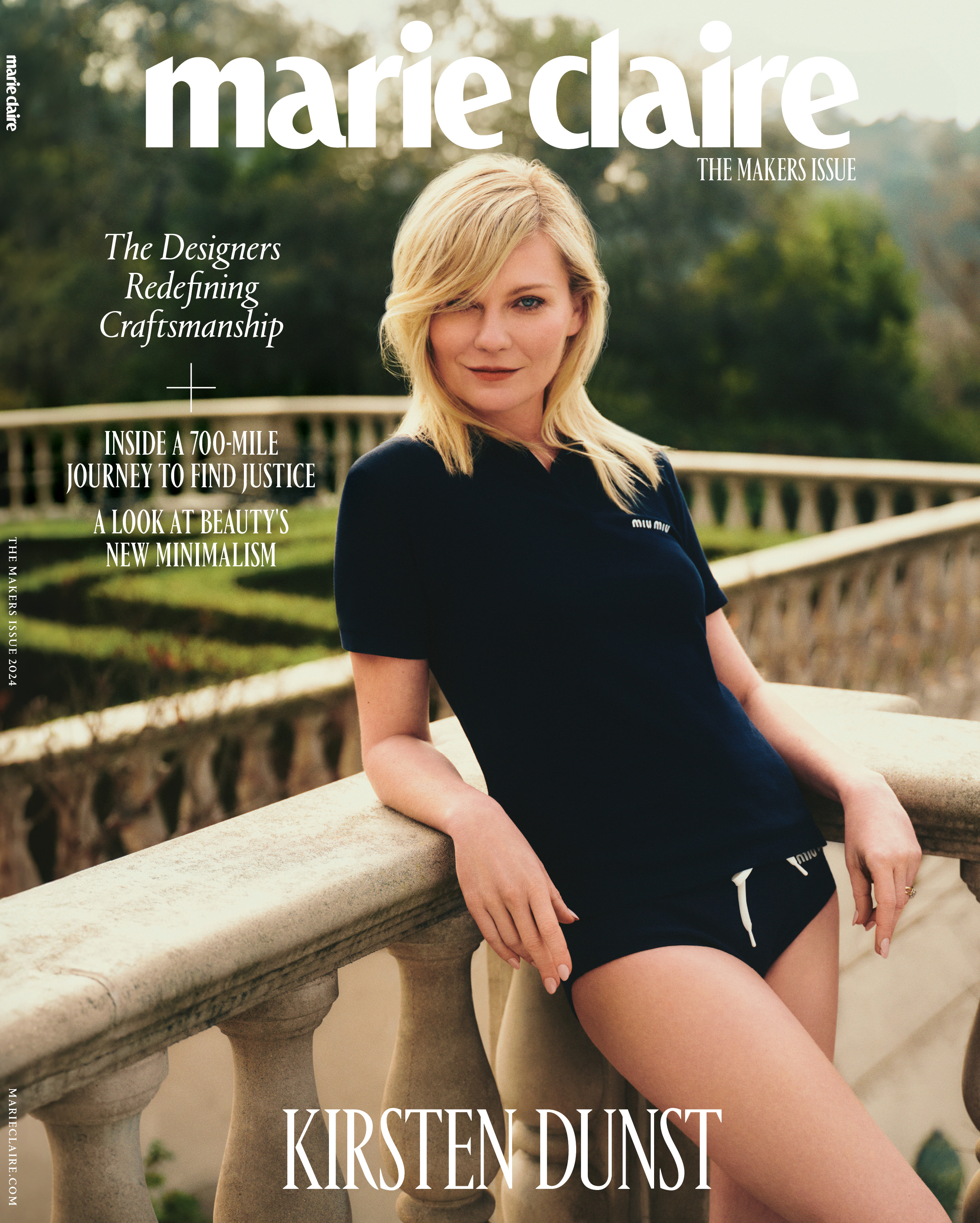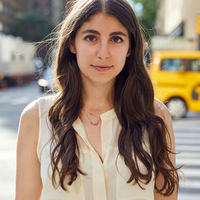The New Crop of Farmers
Queer-and BIPOC-owned farms aren’t just promoting representation—they’re reshaping the industry into a space where their communities can thrive.
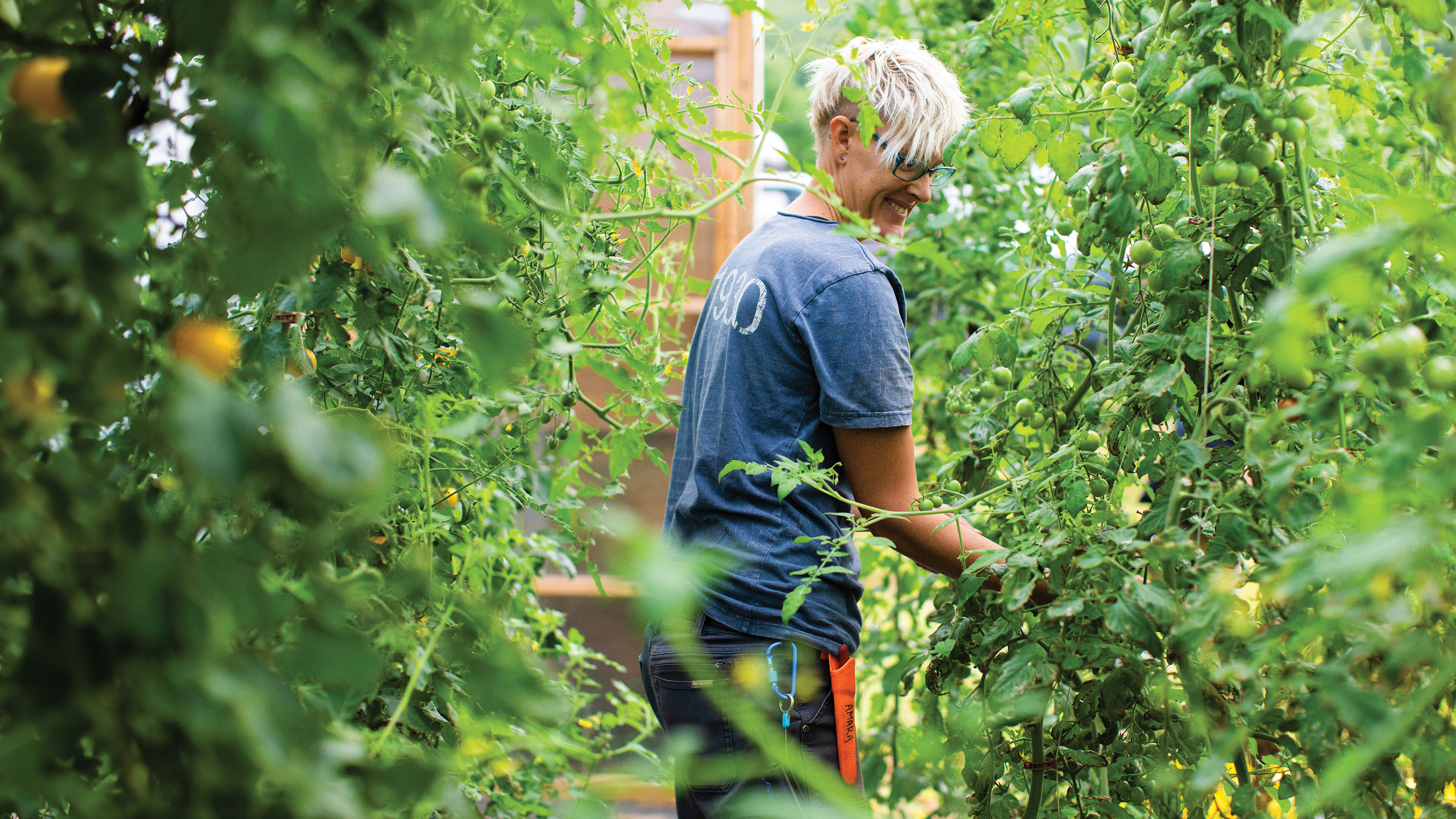
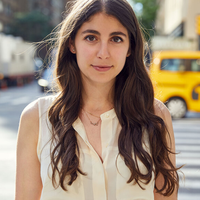
Down a long, flat road in the town of Millerton, New York, about 90 miles from New York City, sits a 12-acre plot of land, the home of Rock Steady Farm. Depending on the season, visitors will find it filled with rows and rows of candy-colored produce: Ripe, tie-dyed tomatoes hanging from vines. Sunshine yellow patty-pan squash protruding from squat leafy plants. Bushy greenery hinting at what may lie beneath the soil: Onions, carrots, parsnips, maybe beets.
This might describe any of the 600-plus farms in Dutchess County, which has long been an agricultural hub in the Northeast—or any farm, anywhere. But Rock Steady is unlike most of its contemporaries in the country. While 96 percent of farms in the U.S. are family-owned, passed down from generation to generation, Rock Steady takes its origins not from family-forged relationships or land ownership, but from an ethos. The queer-owned and operated cooperative vegetable farm describes itself as being "rooted in social justice, food access, and farmer training."
Agriculture is, traditionally, an industry dominated by white, heterosexual, land-owning men (only 4 percent of farmers in the U.S. are people of color, according to a Congressional Research Service report). But in recent years, queer- and BIPOC-owned farms like Rock Steady have popped up around the country, promoting not just representation but also inclusive practices that aim to create more intentional pipelines for queer, trans, Indigenous, and people of color looking to break into the agricultural industry. This effort aims to push back against the long history of marginalized folks not being welcome or being actively, systematically excluded from American farmwork and ownership, efforts that date back to before the country's founding when most farm workers were enslaved.
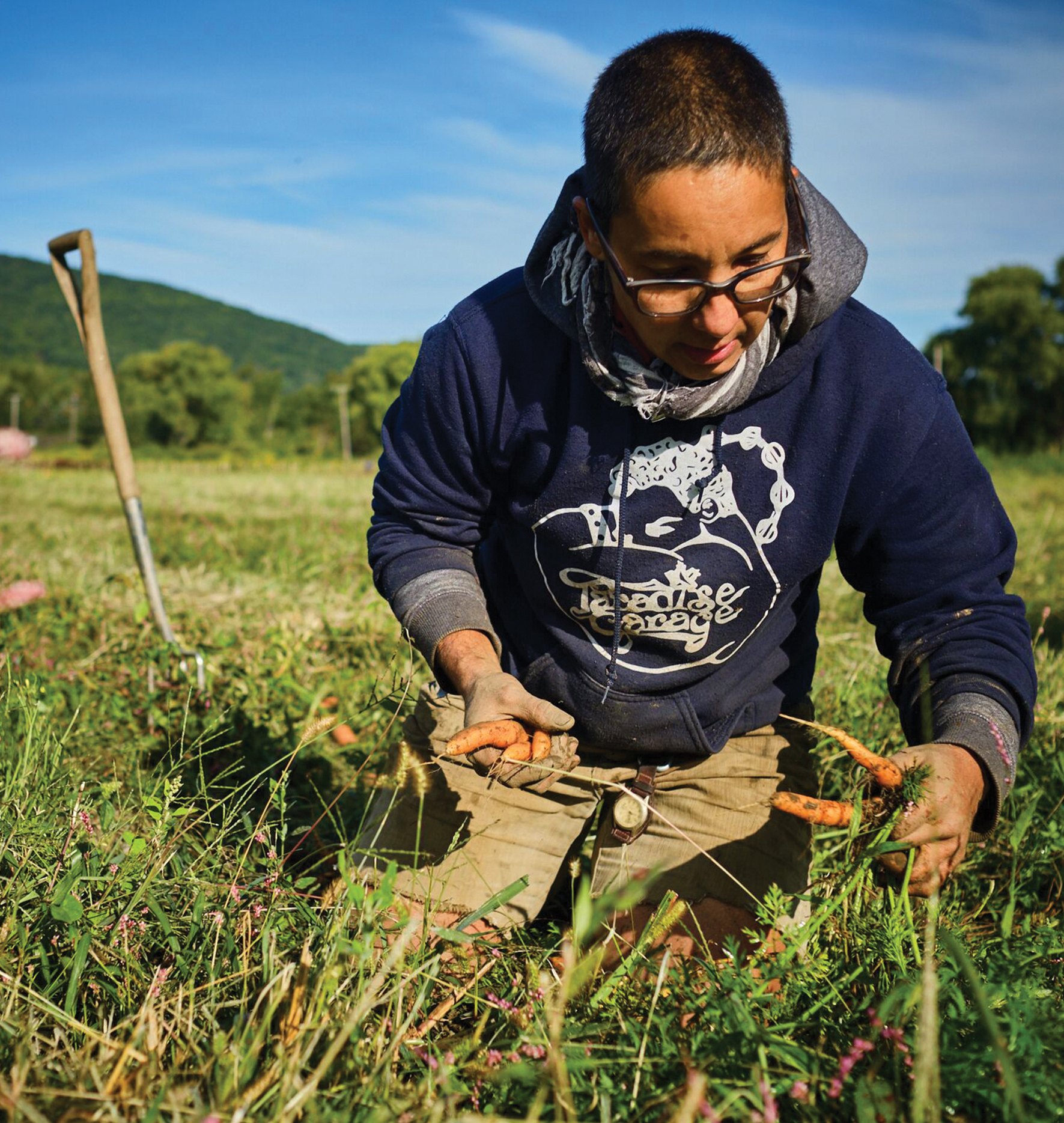
In addition to running the farm, Cheney and Rooney also offer training programs to encourage others to try their hand at farming.
During the height of the pandemic, gardening and farming experienced a surge in popularity: 35 percent of U.S. households now grow fruits and veggies, according to the National Gardening Association, which also found that there was a 65 percent increase in gardening interest from millennials. With that renewed excitement came a more diverse set of hobbyists. Celebrities like Donald Glover and Kelis now run their own production farms, and some have aspirations to sell their goods in restaurants and at farmers' markets.
But for Rock Steady founders Maggie Cheney, D Rooney, and Angela DeFelice, farming was never just a hobby driven by a desire to grow the perfect cucumber. It's a profession they feel called toward—and wish to change from the inside, helping to ensure the next generation of farm workers will thrive in an industry that wasn't designed for them.
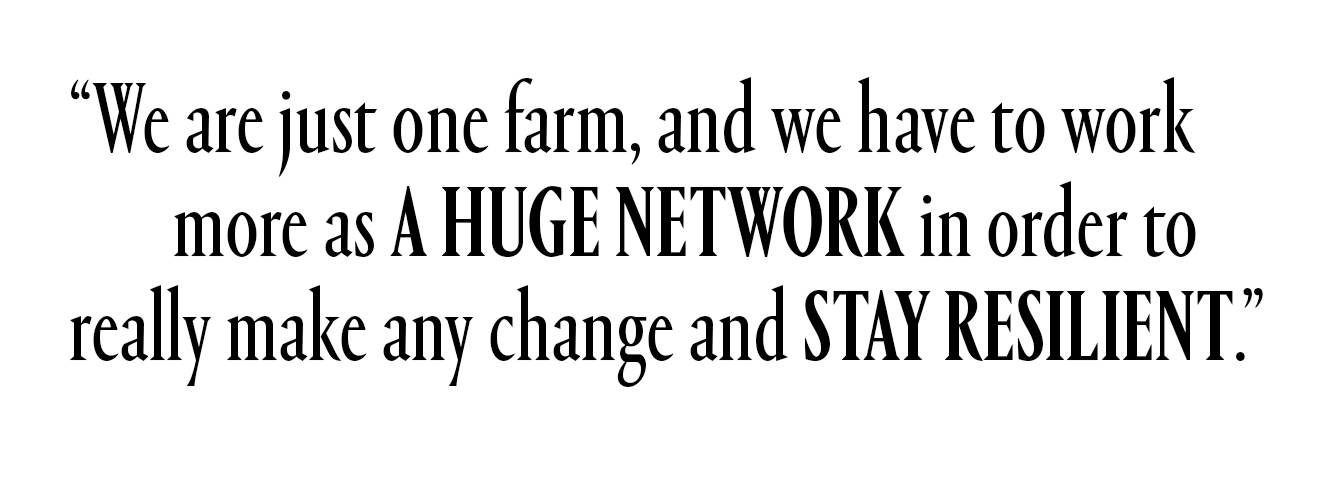
Growing up outside of Boston, where their father worked to connect inner-city youth to farming projects in rural areas, Cheney, 39, witnessed exclusivity in the agricultural industry firsthand. "I had a justice lens to how I was approaching farming," they say. "But I struggled, not seeing a lot of role models who were queer or non-binary, who were in rural areas, doing radical work. For the queer and BIPOC communities, the majority of community-based organizations, social services, hospitals, and mental-health support are all in cities. There are so many reasons for queer people to not be in rural spaces." But to grow food on a large production scale, they need to be.
Cheney met Rooney, 45, through Farm School NYC, a nonprofit that educates people on farming, nutrition, and sustainability, and the two became romantic partners (now, they just consider each other family) with a common professional goal—to run a farm of their own in upstate New York. Together with other queer farmers, like those at Rise & Root Farm in Chester, New York, they found a community of like-minded, forward-thinking people determined to carve out space for themselves in the competitive, sometimes bleak agricultural landscape.
Get exclusive access to fashion and beauty trends, hot-off-the-press celebrity news, and more.
In 2015, Cheney began managing a production farm in Millerton, and by September of that year, an opportunity presented itself: The owner had decided to move on, and he offered all three founders the chance to take over his business, including his equipment, CSA shares, and infrastructure, all of which would give them a leg up on the whole start-a-farm thing. Cheney, Rooney, and DeFelice (who now takes a back seat in an advising role) negotiated a 10-year rolling lease for the 12-acre plot, taking out a $118,000 loan to launch the business.
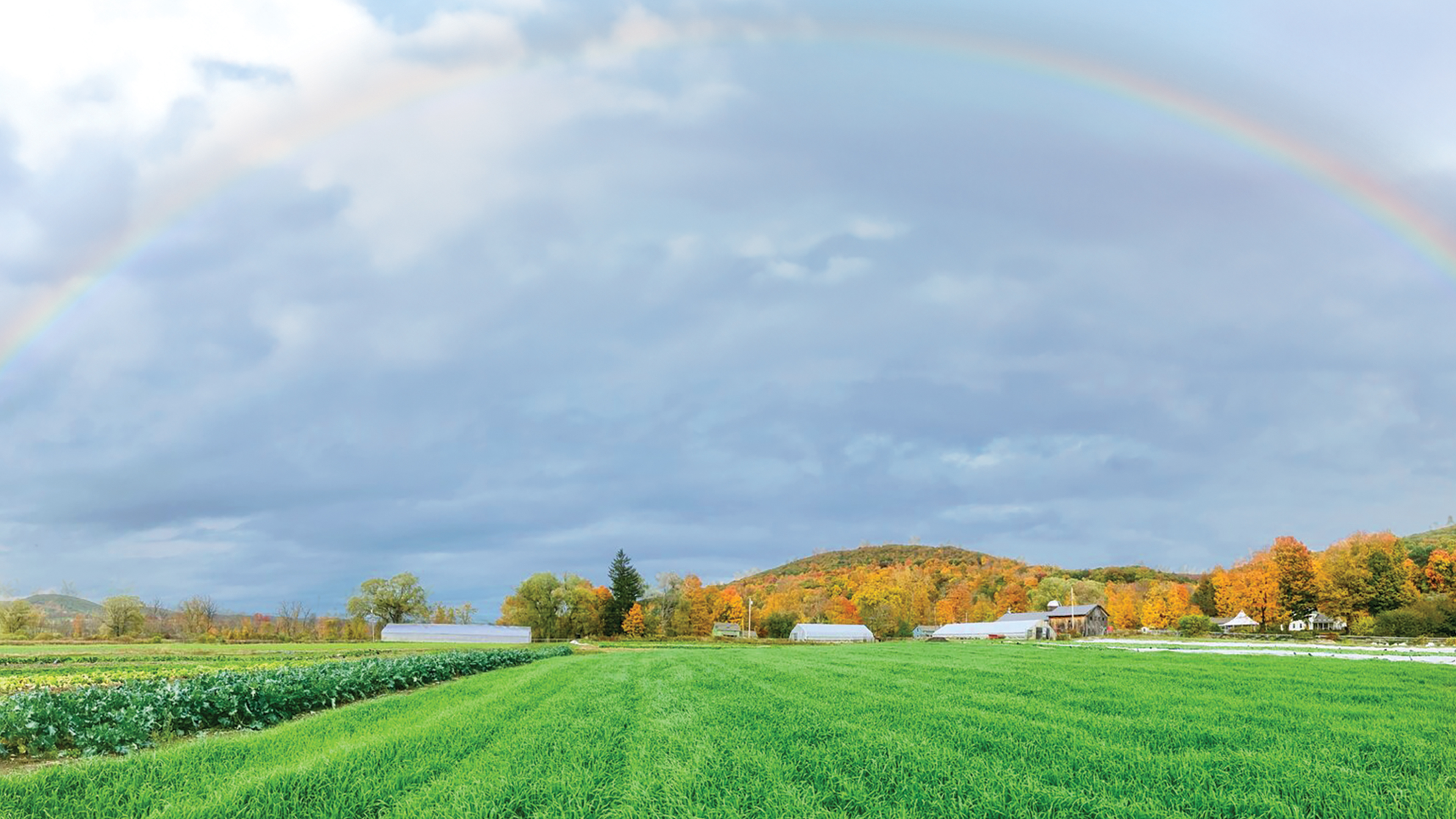
Starting a farm in modern times requires a certain sense of optimism. Farm debt is at an all-time high at more than $535 billion. More than half of U.S. farms haven't been profitable in the past two years, and climate change-related environmental crises can wipe out crops and production.
And yet, the Rock Steady founders had no hesitations. It was bigger than just those 12 acres. It was a space that would make room for people who were like them. Those who had been overlooked and didn’t fit the stereotypical mold of the American farmer. They all felt a pull to the property. "For farming, you really need a connection to the land. You can't fake that," Cheney says. "I feel a huge connection to the soil itself, the way it feels in my hands. If you're feeling anxious, putting your hands in the soil brings you peace and it clicks you into a healthier head space. I don't get that with all soil, but I get that here."
As soon as all the contracts were signed, the Rock Steady founders got to work building their version of a farm, one that could redefine what it means to be a queer farmer. For them, that meant not only taking care of the land, cultivating the crops, and harvesting their produce, but also creating a worker-owned organization that allowed for cooperation, flexibility, and nimbleness. It took years for the founders to collect a living wage, but one of the farm's core tenets is paying its co-owners fairly. At least 21 percent of farm workers in the U.S. live in poverty. At Rock Steady, in 2021, workers earned between $14 and $16 an hour.
"Oftentimes people who have inherited wealth or inherited land have a lot more padding," Cheney says. "We didn't have that. But we wanted to create something that was stable, so putting the energy into building a cooperative allows us to distribute the stress of running a farm."
Rooney adds: "Being in a cooperative is inherently queer. Queers have historically organized in and amongst themselves to thrive and survive. The mainstream support networks have excluded queerness and anything that we need. We are always organizing for ourselves."
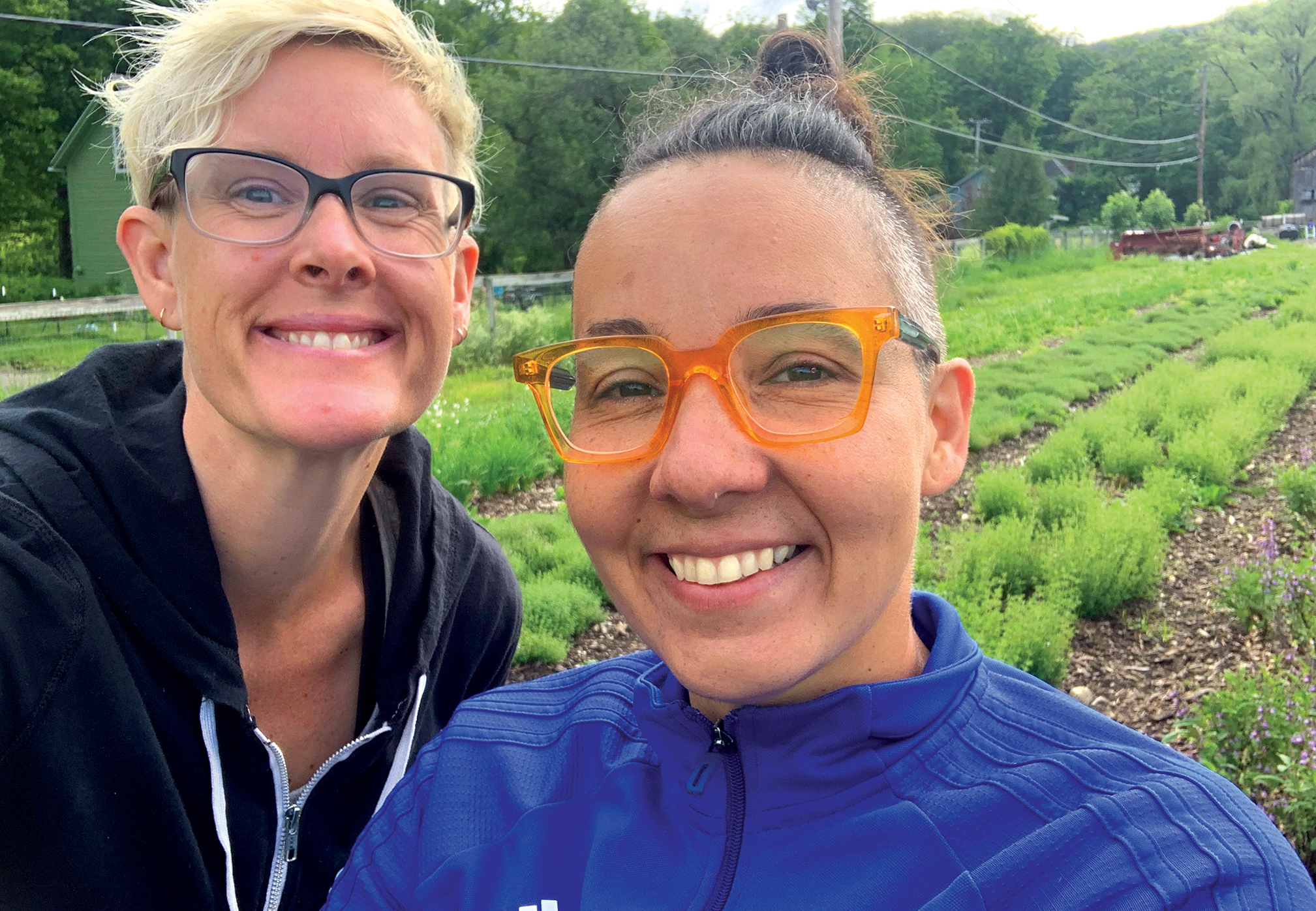
Maggie Cheney (left) and D Rooney at their farm in upstate New York.
Other queer farms, like Rise & Root, have similar models, where their four owners have equal ownership and decision-making in the farm, no matter how brutal or fruitful the season was, and the model allows them to pivot if need be. "In the queer community, there's never an either or. There's always another option. It’s not about the binary," says Rise & Root co-owner Michaela Hayes-Hodge. "This is true in farming in particular."
They've used that thinking over and over again, like when they organized mutual aid drives during the pandemic. "We have to continually show up for ourselves and create the things that are missing for us," Rooney says. "Not just even for the queer community, but for our other communities, whether that's Black and brown trans people, or Black and brown people in general. We're here for all the people that tend to get left out. We know what it's like to be left out."
Now, Rock Steady offers paid training programs for queer, trans, and BIPOC farmers to enter the industry, and a slew of events for folks to learn not just about agriculture but also about how bringing diversity to the farming community can make it stronger. "We can't operate in a bubble," Cheney says. "We are just one farm, and we have to work more as a huge network in order to really make any change and stay resilient."
Despite the backaches, the unpredictable pay, and the hostility of the weather, there is no other work that feels as important or as meaningful to the founders. "We are just a blip of time in the history of food production," Cheney says. "We've had the opportunity to connect with farmers from all over the place. You feel really small and [you realize] we are all connected through this passion of food and earthwork. We want our projects to succeed so that more can succeed." For them, that's true growth.
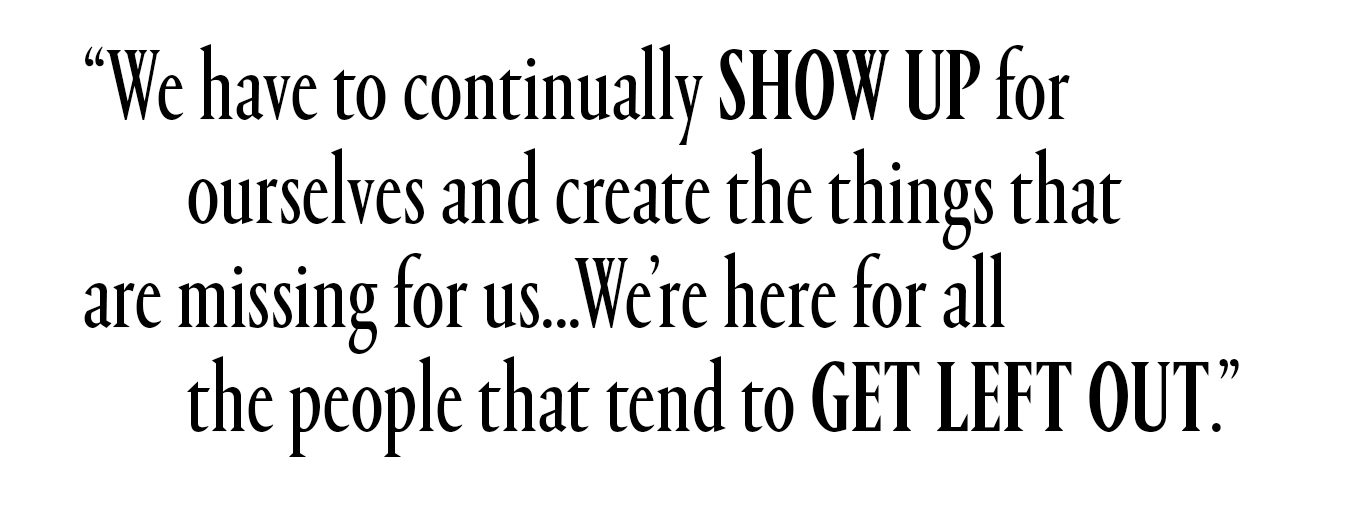
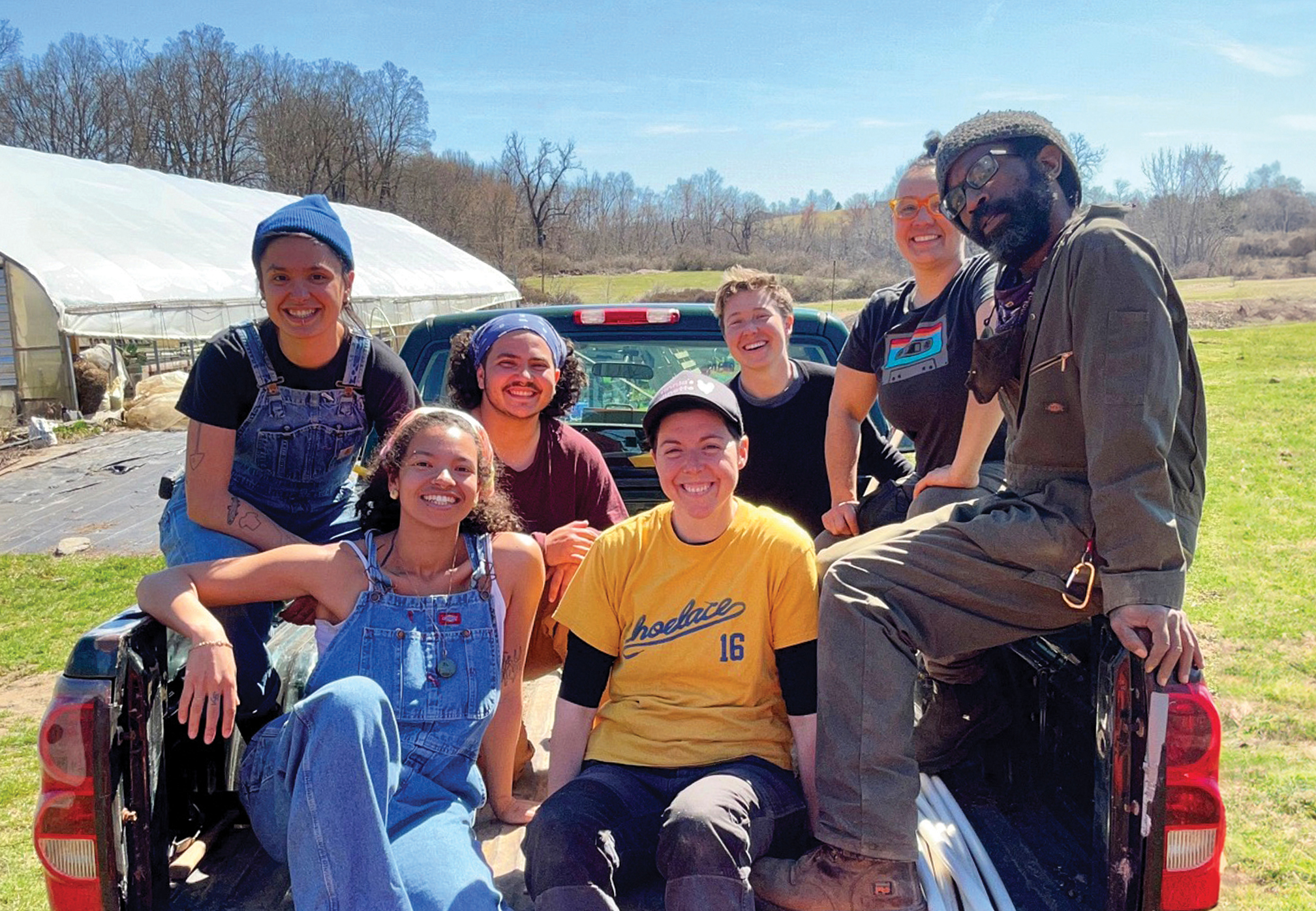
The Rock Steady crew.
Jessica Goodman is the New York Times bestselling author of The Counselors, They'll Never Catch Us, and They Wish They Were Us. She is the former op-ed editor at Cosmopolitan magazine, and was part of the 2017 team that won a National Magazine Award in personal service. She has also held editorial positions at Entertainment Weekly and HuffPost, and her work has been published in outlets like Glamour, Condé Nast Traveler, Elle, and Marie Claire.
